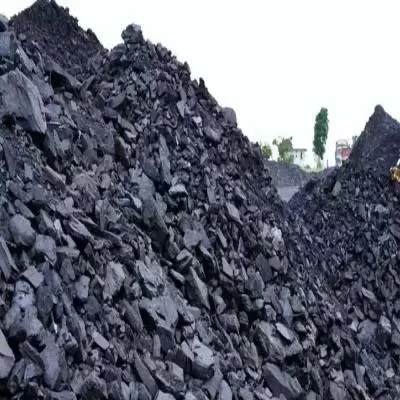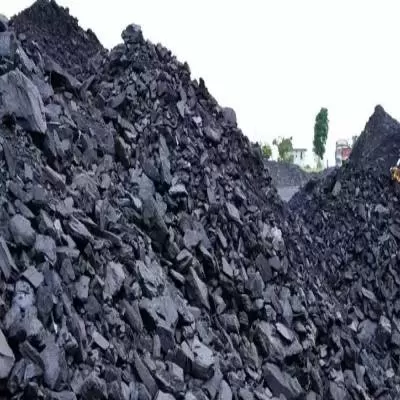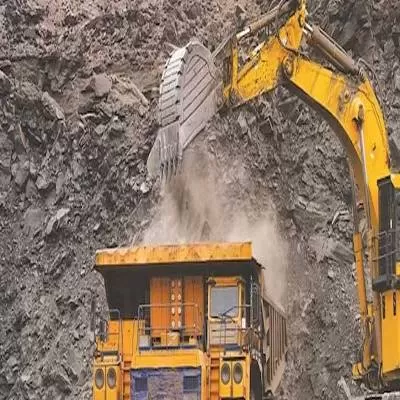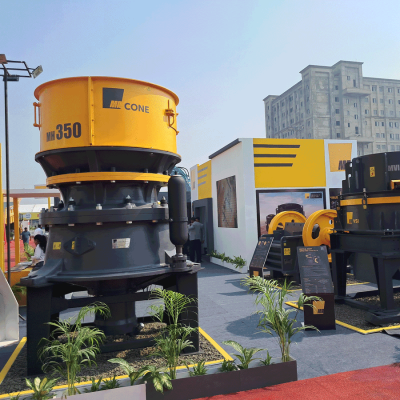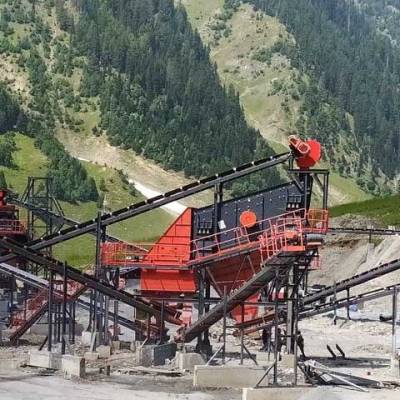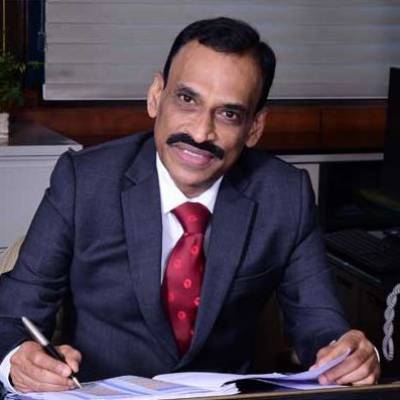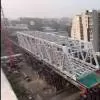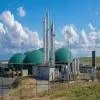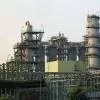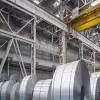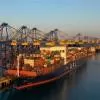- Home
- Infrastructure Energy
- COAL & MINING
- The company's growth should be anywhere between 20 and 25 per cent
The company's growth should be anywhere between 20 and 25 per cent
The media was abuzz recently when Elecon Engineering Company Ltd announced that it had procured a prestigious order of Rs 18.78 crore from McNally Bharat Engineering Company Ltd, on behalf of BHEL ISG. This involved the supply of two rail-mounted, self-propelled, multi-bucket barrel wheel blender reclaimers. For the company, however, such an achievement was just par for the course. Indeed, Elecon recently registered a turnover of Rs 167 crore for Q2 this fiscal, as against Rs 150 crore in the corresponding period last year. What's even more interesting is the fact that the company is making strides in the EPC arena, bagging awards for executing works for prestigious clients. UV Phanikumar, the new CEO of the EPC Division, shares his view of the company, and industry, with Shanti Padukone. Excerpts....
You joined the EPC division of Elecon Engineering a little over a year ago. What has been your vision for the company and how has it grown under your guidance?
Although Elecon Engineering has built flagship projects in the past, it has always had a product-driven culture. However, to establish oneself in the EPC sector and successfully deliver projects, the culture of a company needs to be project-driven. My first challenge after joining Elecon was to understand how the systems worked and how we could better implement them in a project-driven environment. The second step was to enhance our capabilities to become an overall EPC contractor and tie up with the right partners in the industry. Things have changed over the years and, today, with the newest technologies and trends in environment management, we have a gamut of opportunities in the EPC sector ranging from executing projects in power (BTG and BOP), ports, minerals and metals, renewable energy sectors, etc.
Tell us about your tie-ups.
We have a tie-up with CKIT, a South African company that specialises in pipe conveyors. It's actually more than just a collaboration as we have an agreement for technology transfer as well, wherein CKIT will transfer its technology here, and we will manufacture most of the products locally. This tie-up also enabled us to bag the second largest pipe conveyor project in the world, which we are currently executing.
Last year, Elecon also acquired an international company, the Benzlors Radicon Group. How has this helped strengthen your customer base in India and globally?
Till now, we have been the largest power supply transferer in Asia and India. This acquisition will announce our presence in the global market. It will expand our reach to global clients, to provide them our quality products and services at the most competitive price. Hence, this acquisition has taken us to a larger platform.
You were primarily a material handling and manufacturing company. How did you venture into the EPC sector?
The engineering sector in India has been growing at a scorching pace in the past seven to eight years. So instead of merely supplying equipment, if a company can play the role of an integrated supplier to the client, it is a value addition for both company and client. This was the main motive to venture into the EPC sector. Today, we have our footprint on every sector that involves bulk metal handling; whether it is power, ports, steel or cement. In some cases, we carry out complete EPC works in our area of specialisation; in others, we supply the equipment. In small scale projects, we design, manufacture, assemble, erect and commission. We are not only into civil but real mechanical bulk metal handling. And given our strength in equipment, tie-ups with technology partners will enable us to deliver the best in the industry.
Briefly tell us about the company's landmark EPC projects.
One landmark project was the order for the Neyveli Lignite Corporation for the execution of Asia's largest conveyor system of 1,800 m to 2,000 m belt widths and a length of 15 km. We have also executed orders worth Rs 130 crore for the company for manufacturing, erecting and commissioning 2,400 mm drive heads and conveyors for Mine II. The other project is the 7.5 km pipe conveyor we are currently executing. We also recently built a 7.5 km mobile type site conveyor, which is transferable and has a modular concept; here, if the owner wants to shift the whole contraption to a different mine a year after installation, it can be done. All this has been commissioned in Thailand. We are also installing a downhill conveyor regenerator for the NMDC. This is a tricky project with a large amount of technology involved. Further, we are working on another conveyor project where we have used a new wineglass technology, which, owing to its shape, will drastically reduce the cost.
Also, you recently procured an order for BHEL in Bihar for about Rs 29.72 crore. What are your strategies for completing this project on time?
One of our main advantages is the fact that BHEL has been an esteemed customer and is equally knowledgeable about the works being executed. Hence, the cycle time for approvals, etc, is much faster. Our mutual understanding makes progress quicker. The scope will basically remain supply, manufacture and erection of certain equipment.
What kind of technology do you use to execute EPC works?
We have been using technology in terms of design and management for almost six decades; of course, new collaborations are bringing in more exposure and new talent. But, despite this, what is important is the method of execution and development of tools, which is what I have been focusing on for the past year.
How is the company coping with the manpower crunch that has been affecting the industry?
Today, the industry is completely unpredictable in terms of human capital. However, the culture of Elecon has been such that the average service age of employees is more than 20 years. This immense loyalty has served as an advantage in these times. Also, our employees are of topmost priority and we constantly strive to be an employer of equal opportunity. However, the issue of labour is a big problem. We address this situation by picking fresh labourers, training them and providing them every facility to meet their lifestyle needs.
Moving on to the bigger picture, how do you view the Indian infrastructure industry today?
Over the years, the Indian infrastructure industry has been growing steadily, which has more to do with public-sector investments. The GDP has been growing at an average of 7.5-8 per cent. However, the current status is slightly tricky because of certain reforms by the government and unforeseen adversities that have had a negative impact on the industry. One of the main factors is pricing. For example, when a company tries to build a plant on the PPP model on the basis of one price, after the plant has been completed, prices have spiralled to such a level that the project takes a hit. Also, with constantly changing regulations, most announced projects have not taken off and 40 per cent of approved loans are not being taken.
How do you think the situation can be improved?
There is no cognisance taken by the industry despite the number of conferences. We need a real plan that can be implemented. We are planning at the macro level and the other two levels underneath that, forgetting the details of the plan. The lack of evaluation at these levels should be addressed, and the plan must be futuristic. Also, back-up plans should be chalked out for both projects and investors.
How do you foresee the future of infrastructure in India? And what is the future of Elecon?
India's rise in recent years has been the most prominent in the world economy. With an upsurge in investments, the future does not appear bleak. Essential to the realisation of the full potential of the economy are quality and efficiency. Despite a slowdown, smart instruments like viability gap funding and project alliances will pick up and boost the industry.
Elecon's turnover of Rs 700 crore and order book of around Rs 1,600 to 1,700 crore lead me to estimate that its growth should be anywhere between 20 and 25 per cent in coming years. The order book will not slow down, but will remain at its constant speed because the market will pick up soon. Hence, our targets should not be unrealistic.
Fact sheet:
Year of Establishment: 1951
Top Management (Promoters): Prayasvin Patel, Chairman and Managing Director)
No. of Employees: 900
Centre(s) of Operation: Manufacturing unit located at Vallabh Vidya Nagar, Anand, Gujarat;
EPC Office located at Bengaluru; Marketing and service centres located in almost all tier-I, -II cities in India and branches overseas.
Ongoing Projects: NMDC-Donimalai, BSEB-Barauni Thermal Power Station, NMDC-Nagarnar Steel Plant, Lanco Infratech, Material handling systems for cement plants, and many more.
Upcoming Projects: Various BOP and CHP packages from NTPC, BHEL and IPPs, cement plants, etc
Turnover: Rs 700 crore
Current Order Book: Rs 1,600-1,700 crore
UV Phanikumar, CEO-EPC, Elecon Engineering Company LtdThe media was abuzz recently when Elecon Engineering Company Ltd announced that it had procured a prestigious order of Rs 18.78 crore from McNally Bharat Engineering Company Ltd, on behalf of BHEL ISG. This involved the supply of two rail-mounted, self-propelled, multi-bucket barrel wheel blender reclaimers. For the company, however, such an achievement was just par for the course. Indeed, Elecon recently registered a turnover of Rs 167 crore for Q2 this fiscal, as against Rs 150 crore in the corresponding period last year. What's even more interesting is the fact that the company is making strides in the EPC arena, bagging awards for executing works for prestigious clients. UV Phanikumar, the new CEO of the EPC Division, shares his view of the company, and industry, with Shanti Padukone. Excerpts....You joined the EPC division of Elecon Engineering a little over a year ago. What has been your vision for the company and how has it grown under your guidance?Although Elecon Engineering has built flagship projects in the past, it has always had a product-driven culture. However, to establish oneself in the EPC sector and successfully deliver projects, the culture of a company needs to be project-driven. My first challenge after joining Elecon was to understand how the systems worked and how we could better implement them in a project-driven environment. The second step was to enhance our capabilities to become an overall EPC contractor and tie up with the right partners in the industry. Things have changed over the years and, today, with the newest technologies and trends in environment management, we have a gamut of opportunities in the EPC sector ranging from executing projects in power (BTG and BOP), ports, minerals and metals, renewable energy sectors, etc.Tell us about your tie-ups.We have a tie-up with CKIT, a South African company that specialises in pipe conveyors. It's actually more than just a collaboration as we have an agreement for technology transfer as well, wherein CKIT will transfer its technology here, and we will manufacture most of the products locally. This tie-up also enabled us to bag the second largest pipe conveyor project in the world, which we are currently executing.Last year, Elecon also acquired an international company, the Benzlors Radicon Group. How has this helped strengthen your customer base in India and globally?Till now, we have been the largest power supply transferer in Asia and India. This acquisition will announce our presence in the global market. It will expand our reach to global clients, to provide them our quality products and services at the most competitive price. Hence, this acquisition has taken us to a larger platform.You were primarily a material handling and manufacturing company. How did you venture into the EPC sector?The engineering sector in India has been growing at a scorching pace in the past seven to eight years. So instead of merely supplying equipment, if a company can play the role of an integrated supplier to the client, it is a value addition for both company and client. This was the main motive to venture into the EPC sector. Today, we have our footprint on every sector that involves bulk metal handling; whether it is power, ports, steel or cement. In some cases, we carry out complete EPC works in our area of specialisation; in others, we supply the equipment. In small scale projects, we design, manufacture, assemble, erect and commission. We are not only into civil but real mechanical bulk metal handling. And given our strength in equipment, tie-ups with technology partners will enable us to deliver the best in the industry.Briefly tell us about the company's landmark EPC projects.One landmark project was the order for the Neyveli Lignite Corporation for the execution of Asia's largest conveyor system of 1,800 m to 2,000 m belt widths and a length of 15 km. We have also executed orders worth Rs 130 crore for the company for manufacturing, erecting and commissioning 2,400 mm drive heads and conveyors for Mine II. The other project is the 7.5 km pipe conveyor we are currently executing. We also recently built a 7.5 km mobile type site conveyor, which is transferable and has a modular concept; here, if the owner wants to shift the whole contraption to a different mine a year after installation, it can be done. All this has been commissioned in Thailand. We are also installing a downhill conveyor regenerator for the NMDC. This is a tricky project with a large amount of technology involved. Further, we are working on another conveyor project where we have used a new wineglass technology, which, owing to its shape, will drastically reduce the cost.Also, you recently procured an order for BHEL in Bihar for about Rs 29.72 crore. What are your strategies for completing this project on time?One of our main advantages is the fact that BHEL has been an esteemed customer and is equally knowledgeable about the works being executed. Hence, the cycle time for approvals, etc, is much faster. Our mutual understanding makes progress quicker. The scope will basically remain supply, manufacture and erection of certain equipment. What kind of technology do you use to execute EPC works?We have been using technology in terms of design and management for almost six decades; of course, new collaborations are bringing in more exposure and new talent. But, despite this, what is important is the method of execution and development of tools, which is what I have been focusing on for the past year.How is the company coping with the manpower crunch that has been affecting the industry?Today, the industry is completely unpredictable in terms of human capital. However, the culture of Elecon has been such that the average service age of employees is more than 20 years. This immense loyalty has served as an advantage in these times. Also, our employees are of topmost priority and we constantly strive to be an employer of equal opportunity. However, the issue of labour is a big problem. We address this situation by picking fresh labourers, training them and providing them every facility to meet their lifestyle needs.Moving on to the bigger picture, how do you view the Indian infrastructure industry today?Over the years, the Indian infrastructure industry has been growing steadily, which has more to do with public-sector investments. The GDP has been growing at an average of 7.5-8 per cent. However, the current status is slightly tricky because of certain reforms by the government and unforeseen adversities that have had a negative impact on the industry. One of the main factors is pricing. For example, when a company tries to build a plant on the PPP model on the basis of one price, after the plant has been completed, prices have spiralled to such a level that the project takes a hit. Also, with constantly changing regulations, most announced projects have not taken off and 40 per cent of approved loans are not being taken.How do you think the situation can be improved?There is no cognisance taken by the industry despite the number of conferences. We need a real plan that can be implemented. We are planning at the macro level and the other two levels underneath that, forgetting the details of the plan. The lack of evaluation at these levels should be addressed, and the plan must be futuristic. Also, back-up plans should be chalked out for both projects and investors.How do you foresee the future of infrastructure in India? And what is the future of Elecon?India's rise in recent years has been the most prominent in the world economy. With an upsurge in investments, the future does not appear bleak. Essential to the realisation of the full potential of the economy are quality and efficiency. Despite a slowdown, smart instruments like viability gap funding and project alliances will pick up and boost the industry.Elecon's turnover of Rs 700 crore and order book of around Rs 1,600 to 1,700 crore lead me to estimate that its growth should be anywhere between 20 and 25 per cent in coming years. The order book will not slow down, but will remain at its constant speed because the market will pick up soon. Hence, our targets should not be unrealistic.Fact sheet:Year of Establishment: 1951 Top Management (Promoters): Prayasvin Patel, Chairman and Managing Director) No. of Employees: 900 Centre(s) of Operation: Manufacturing unit located at Vallabh Vidya Nagar, Anand, Gujarat; EPC Office located at Bengaluru; Marketing and service centres located in almost all tier-I, -II cities in India and branches overseas. Ongoing Projects: NMDC-Donimalai, BSEB-Barauni Thermal Power Station, NMDC-Nagarnar Steel Plant, Lanco Infratech, Material handling systems for cement plants, and many more. Upcoming Projects: Various BOP and CHP packages from NTPC, BHEL and IPPs, cement plants, etc Turnover: Rs 700 croreCurrent Order Book: Rs 1,600-1,700 crore


